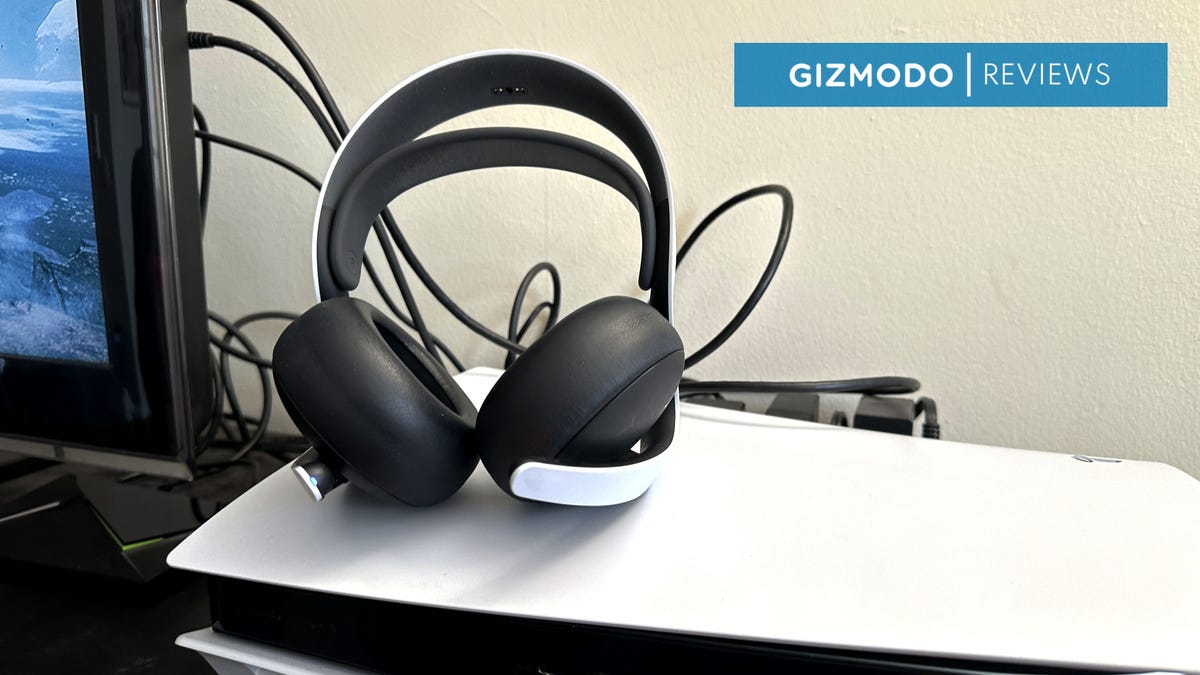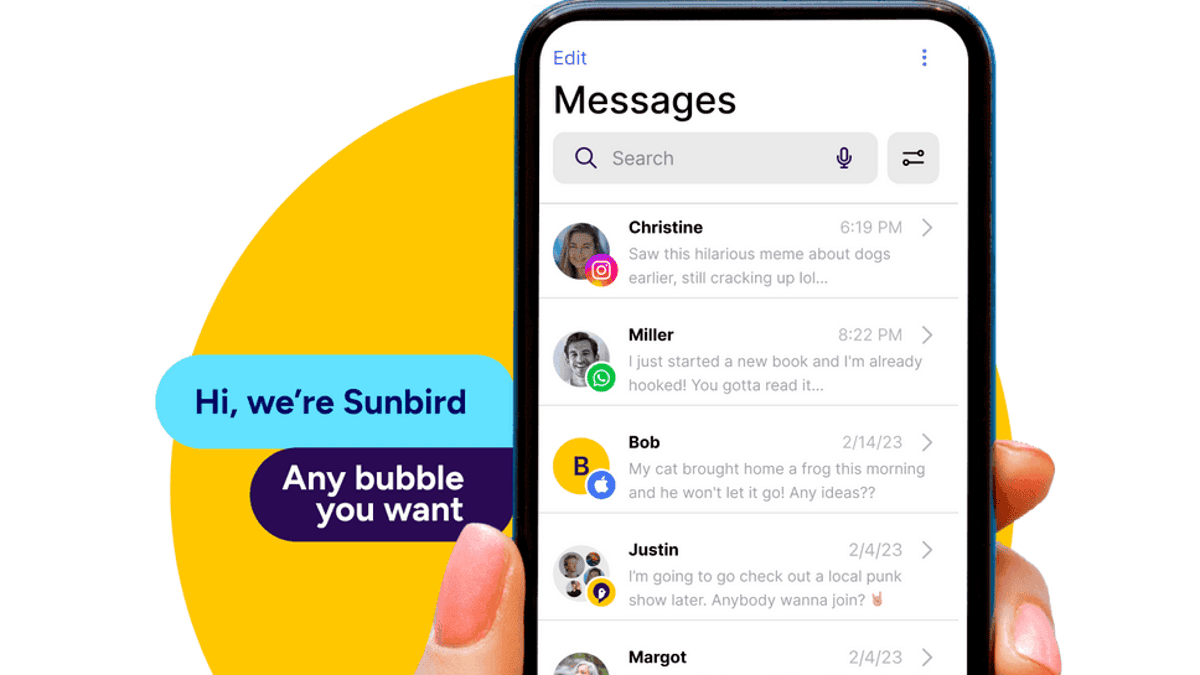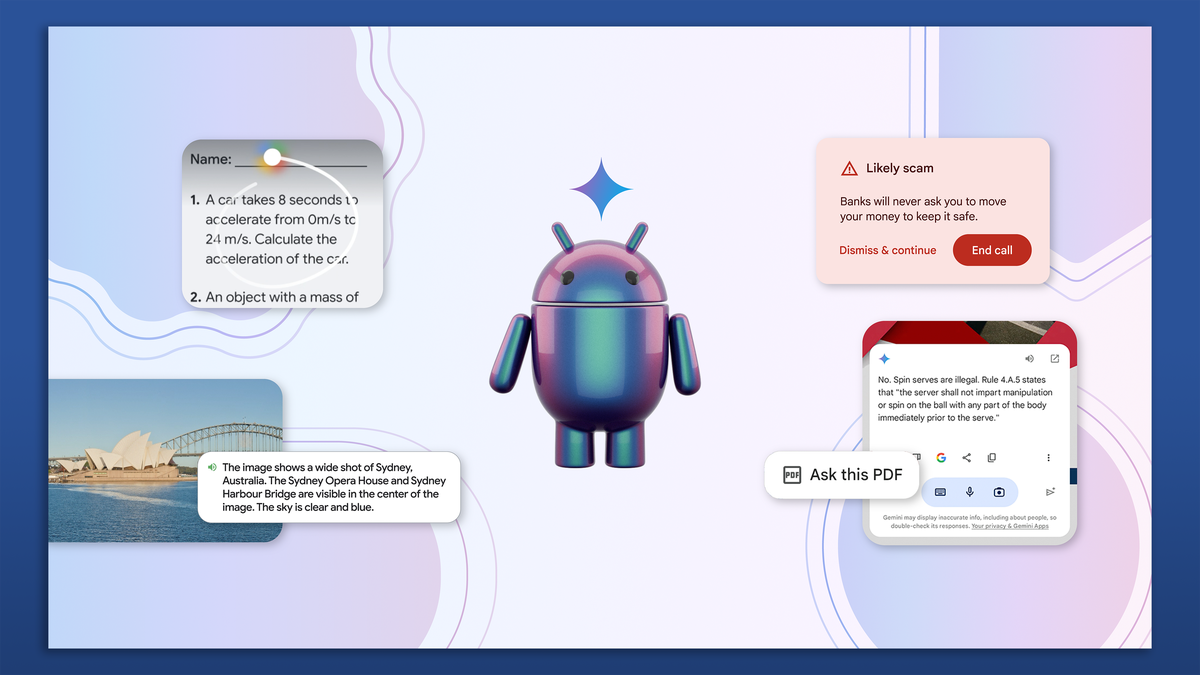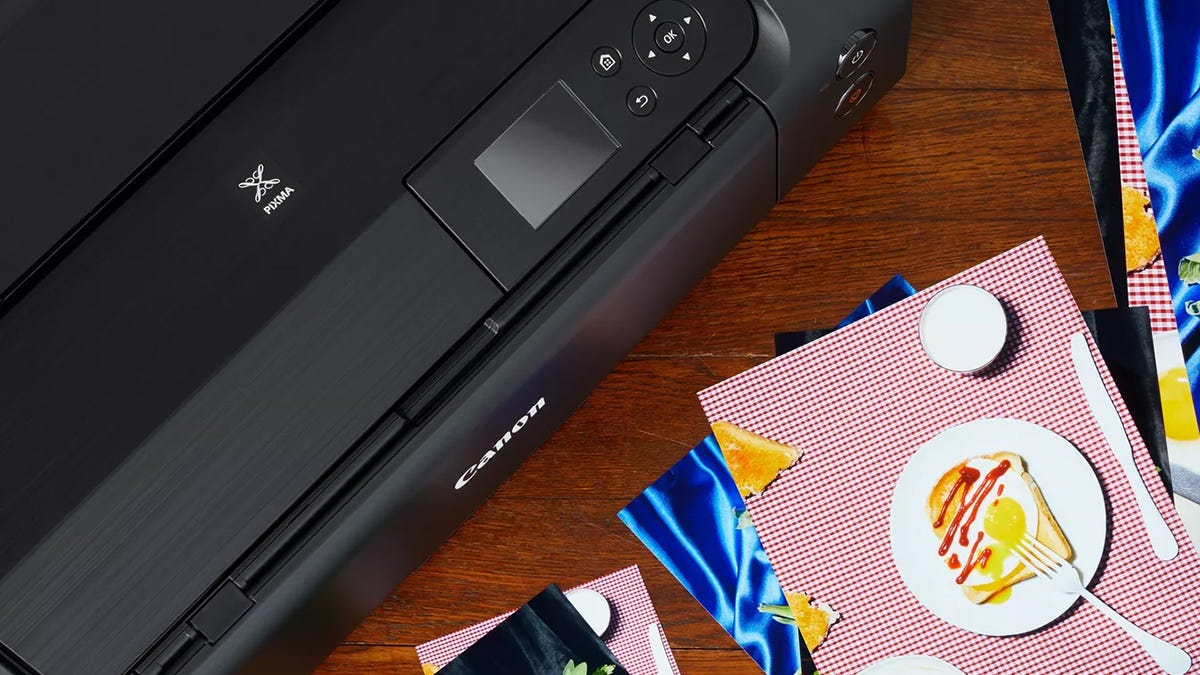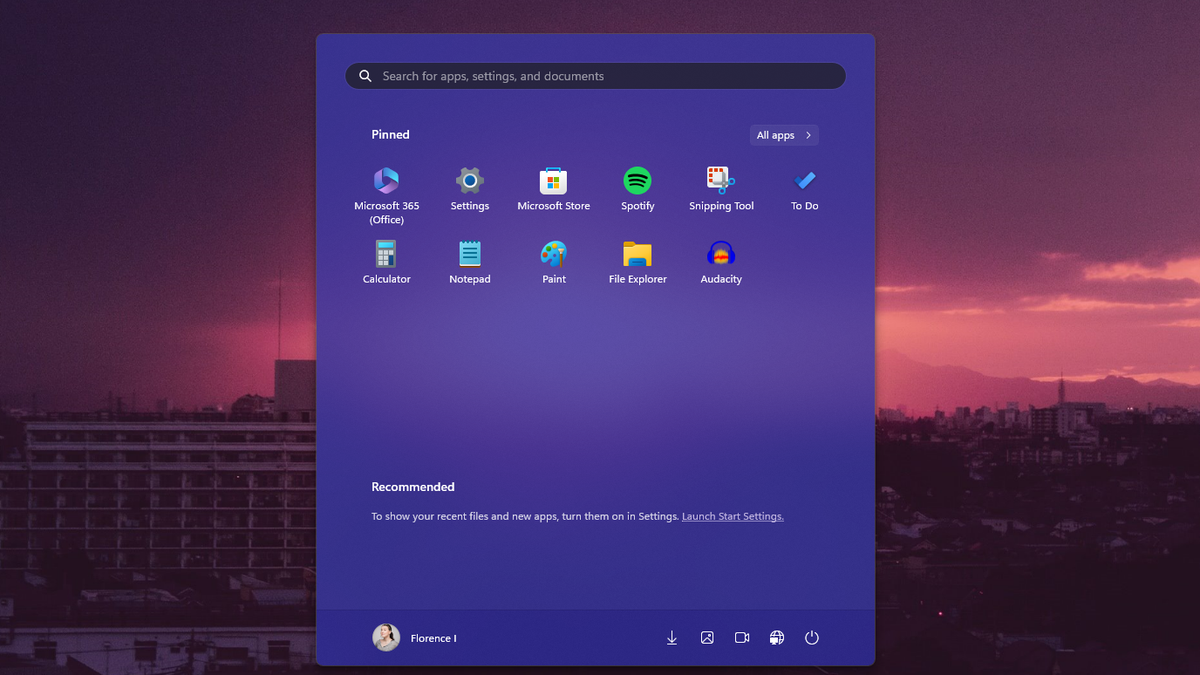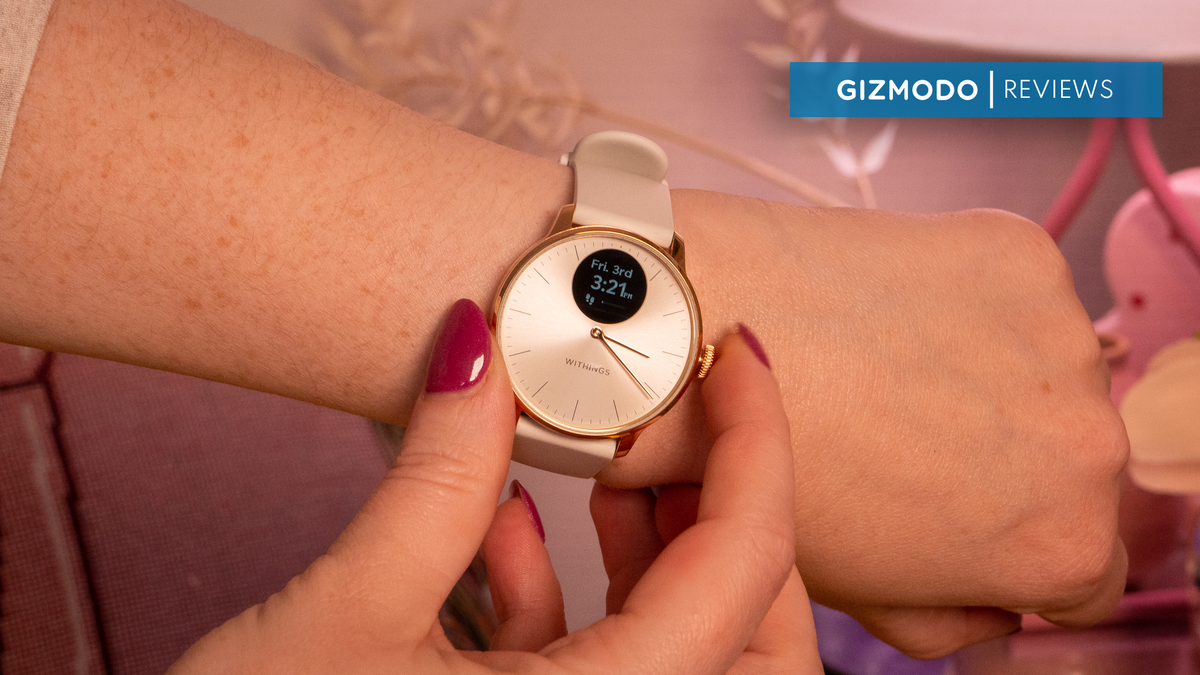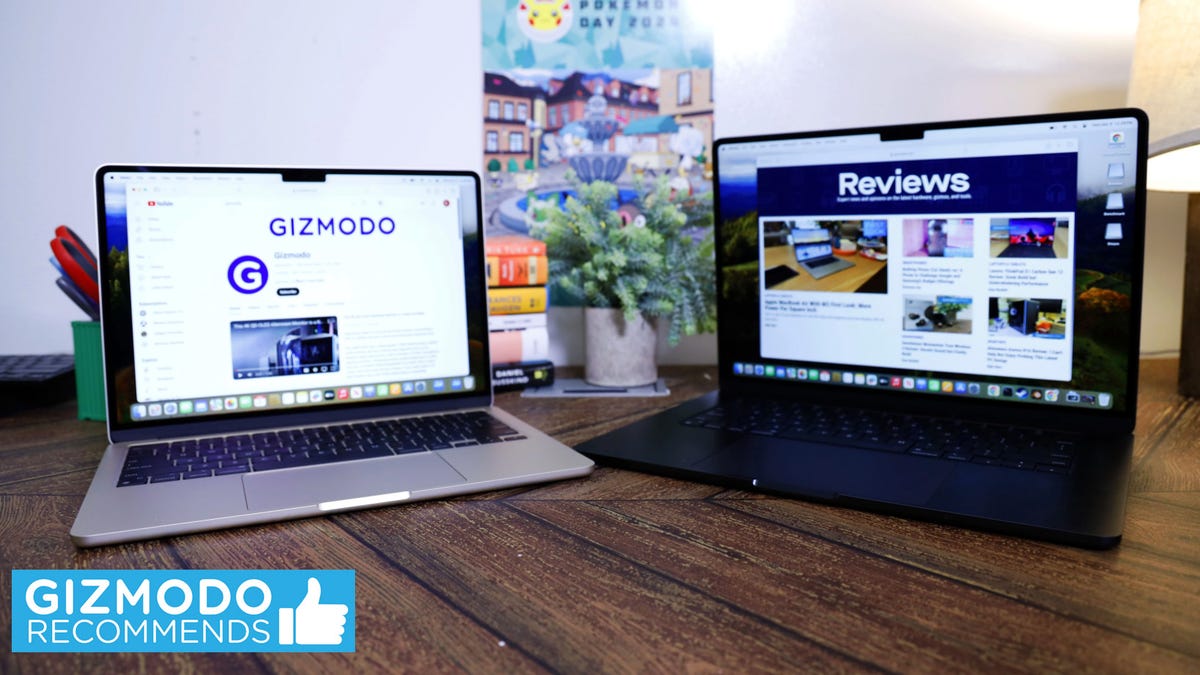PlayStation Pulse Elite Headset
The PlayStation Pulse Elite would be a great headset with several fun and innovative peripherals, but it’s far too uncomfortable.
PlayStation’s latest first-party headset uses Bluetooth to connect with PlayStation 5, PC, and mobile. It sounds very good on PC, but it excels on PS5. Unfortunately, it compresses the head and ears to the point that it’s actively uncomfortable whether you’re moving around or standing perfectly still.
Priced at $150
Pros
Great audio quality on PC, but it’s even better on PlayStation 5
Snakeable mic has good noise cancelling capabilities
The wall-hanging charging mount is a great peripheral that comes in-box
Cons
It’s incredibly uncomfortable with no option to adjust the tight fit
Moving around while wearing it produces an awkward, muffled sensation
I can hear my own heartbeat running through the suction cup-like pads of the PlayStation Pulse Elite. The headset is so tight it’s picking up on the blood running at frightening rates to my head. It’s a strange sensation, to be sure, like I’m half-submerged in some sensory deprivation tank, and I’m about to be hurled out of this planar existence. On that ride out of time and space, my Pulse Elite headset would be with me, cupped to my ears like a sound-hungry parasite. It’s not a pleasant feeling. It’s uncomfortable, bordering on painful.
We received the unit for pre-launch access so that headset software could receive some updates in the near future. That’s fine because it wasn’t the software that was the problem with the Pulse Elite. It’s designed with such a large gap between the pads and speakers that if I wasn’t actively listening to content, I did not want to have the Pulse Elite strapped to my head due to the unnerving and uncomfortable air pocket left between my ears and the device.
Everything, from the Pulse Elite’s marketing to its colors, shape, and design, denotes that it’s a headset made for a PlayStation 5, though you can also connect it via Bluetooth to a separate computer or phone so you can take a call while keeping your headphones engaged. It sounds best on PS5 thanks to the full spatial audio experience on Sony’s proprietary Link hardware, but the listening experience is also perfectly fine on other devices.
If you only care about sound quality, then the Pulse Elite does the job admirably well. The wireless connectivity to Link is pretty seamless, and you won’t have to worry about sound bleed (mostly because there’s a vacuum chamber between your ears and the padding).
For the $150 I would spend on the Pulse Elite, I would sooner choose another midrange or even a far cheaper headset with adjustable components and pads that don’t turn my ears into pudding. It’s another example of a competent yet overly-designed product from Sony. The company’s new PlayStation Portal device admirably does the job of remote play, but it misses the point of just what most people would want from a handheld device. I appreciate all the small touches for the Pulse Elite headset, such as the snaking microphone and the unique wall charging mount, but I don’t even want to consider wearing it again.
PlayStation Pulse Elite Headset Comfort
Stop Hurting Me, Please…
The PlayStation Pulse Elite headset may be the only pair of premium headphones I’ve had to remove just for the sake of my precious ears constantly. If I didn’t have any audio going into each pad, then my head would start to feel like it’s being squeezed from both ends as the blood tries to rush up to my ears to fill the void.
If you’re already judging the Pulse Elite on its rather weird look, just know they don’t get any less weird when you’re wearing them. There’s nothing actually adjustable about the headset save for the microphone bead. The top strap does an admirable job of resting on the top of your noggin without being too tight, though I have a bald head that doesn’t have to worry about my hair getting caught or squashed. I’ve never used the regular Pulse 3D headset that was released alongside the original PS5, so I don’t know how the comfort compares. Still, after hours of taking the Pulse Elite headset on and off, I have a headache. I’m staring at the Pulse Elite with the accusing eyes of a paternal figure who’s not exactly angry, just disappointed.
When I first put them on, I thought to myself, “Oh, they’re a bit tight.” Then they kept shrinking and shrinking, and then I could hear the blood pumping to my brain. When you dare walk around with them, every shudder and rumble of your feet rebound in your ears. This sensation isn’t quite as bad when I’m actually listening to anything with the headset on, but without it, this stale air pocket seems to compress my ears slowly.
If I’m engrossed in a game or task, I might not notice the discomfort around my ears quite as much, but I never forget the headset’s there.
PlayStation Pulse Elite Headset Usability
I’m a Fan of the Pulse Elite’s Hanging Charging Unit and Snakeable Mic
Sony’s latest game-centric headset might look strange, especially when adorned on your head, but the odd, curving shape actually belies a few smart design decisions that feel wasted since the earpads are such a big hindrance. The device has a snakeable microphone that can go in and out of the left headset arm. You can keep it retracted if you want, and my friends had no problems hearing me talk without the mic in its natural resting position. While the arm is rather sturdy at full extension, that retractability also means you can stuff the mic arm back into the headset when not in use or when you’re taking it on the go.
The actual audio running to and from the headset had little latency, and my friends reported no issues with the sound of my voice coming from the mic since the built-in AI noise rejection does a pretty good job at removing the sound of me slurping down a whiskey sour.
The device comes with a single USB-C port for charging and an additional headphone jack. There’s a volume switch as well as the power/connection button on the headset’s right arm. You can indeed connect the Bluetooth and Link simultaneously, which could result in some insanity going on between your ears as you overlay audio on top of each other. The PlayStation Link USB dongle works with both PlayStation 5 and PC. You’ll need to perform an update to get it working on PS5, but it’s seamless when shoved into a regular computer.
Other headsets have tried to fix the issue players come up against needing to exchange dongles between devices. The $380 Astro A50X (which I should add is a much, much, much more comfortable headset than the Pulse Elite) used a single base station to connect all your devices as a passthrough to the TV. This worked, but only so much, as it requires even more cable management than usual. The Pulse might also work as a multi-device headset thanks to its simultaneous Bluetooth and Link connection capabilities.
I wish the USB dongle had some case or a cap to protect its 2.1 head. I also wish it didn’t have to be USB-A at all. While the original PlayStation 5 has one USB-A on the front, the newer, slim version of the PS5 only has USB-C parked at its front door. Sony moved the USB-A behind the console, so it will make removing the Link dongle a fair bit more involved. It’s just more unnecessary hassle. You could buy another Link dongle separately for a grand total of $25 if you want multiple connection points to your various gaming devices, but that might be a stretch for most buyers when you’re already throwing down $150 for the headset.
What is neat about the Pulse Elite is the wall-mounted charging station that comes packed inside the box. It requires you to drill a plate into your wall or shelf, but you can then slot it into a special hanger that connects to an outlet through USB-C. After that’s installed, you can hang your headset up to charge in between gaming sessions. It works well and will fit in rather well decor-wise with your existing PlayStation hardware.
PlayStation promised the battery would last a full 20 hours before needing a full recharge. I used it for several days in a row, twice on multi-hour-long gaming sessions with friends. I never actually found any pressing need to charge it, but if it becomes necessary to plug it in while gaming, the charging port placement toward the front of the headset could potentially interfere with your play. Still, the battery is capable enough that such a small quibble is hardly worth mentioning, especially considering its biggest issue was that I felt loathe to wear it when I wasn’t actively listening to something.
PlayStation Pulse Elite Headset Sound Quality
Fine Audio on PC or Mobile, but It’s Far Better on PS5
I found the only way I could ever sit comfortably with the headset was when there was audio running through it. Thankfully, at the very least, I didn’t have any real problems with the sound quality of this $150 headset. Sony talked a big game with its planar magnetic drivers for its 3D audio, but you need to use a PS5 to get the most out of it.
On PC or when listening over Bluetooth, there’s a nice crispness to the sound without being overbearing or jarring. You’ll curse every time there’s dead air, but I can’t say I was disappointed in my lossless listening experience when it was just me trying to ignore work by watching YouTube videos.
The sound quality is marginally better when using the Link dongle on a PC. But for the true Pulse experience, Sony obviously wants you to use this with the PS5. That’s how you access the Elite’s full spatial audio and bass capabilities. After first using it on PC, I was honestly surprised at how impactful Mortal Kombat One sounded compared to other headsets I’ve used with the same console.
The headset can be a treat on some games more than others. MK1 has a very good sound design, but a game like God of War Ragnarök feels like it should have a bit more punch. Again, Sony could always offer software updates to the headset to finagle the audio drivers. What they can’t possibly update are those non-removable pads.
For $150, You Can Do Better
Most folks who consider the Pulse Elite headset will inevitably be PlayStation 5-centric players who want a headset they know will work with their solo console. I wish I could say this was a good option for those Sony diehard fans, but I can’t. If you want a PlayStation-specific headset, you have others like the Sony Inzone line of headsets with a more traditional feel or even the Pulse Explore earbuds. I wanted to love these. Still, I’m now dealing with a pressure between my ears that hasn’t gone away after writing this review. My head feels so compressed I almost want to stick my thumb in my mouth and blow up my head like a Looney Toons character to feel less compressed again. It’s never a good sign once you start thinking your own body is as malleable as a cartoon character.
/cdn.vox-cdn.com/uploads/chorus_asset/file/25799335/247464_Kindle_Paperwhite_ALiszewski_0001.jpg)

